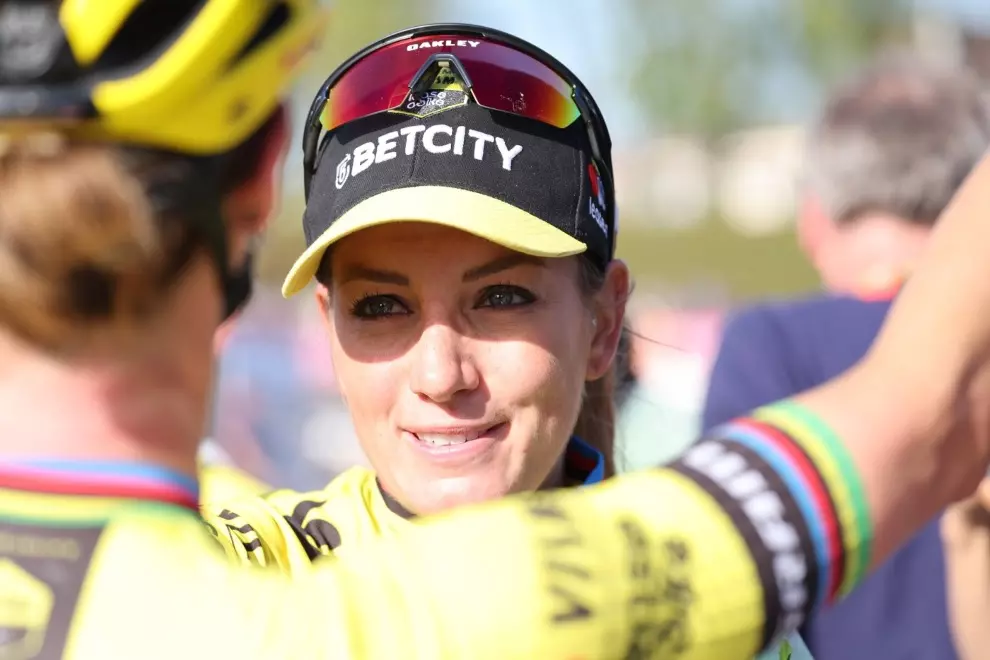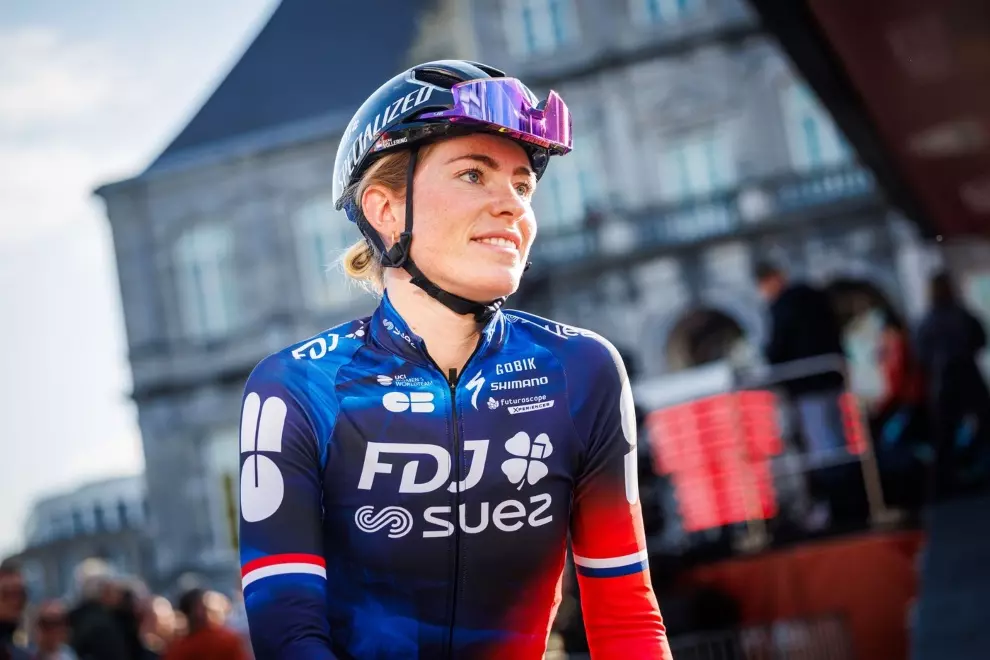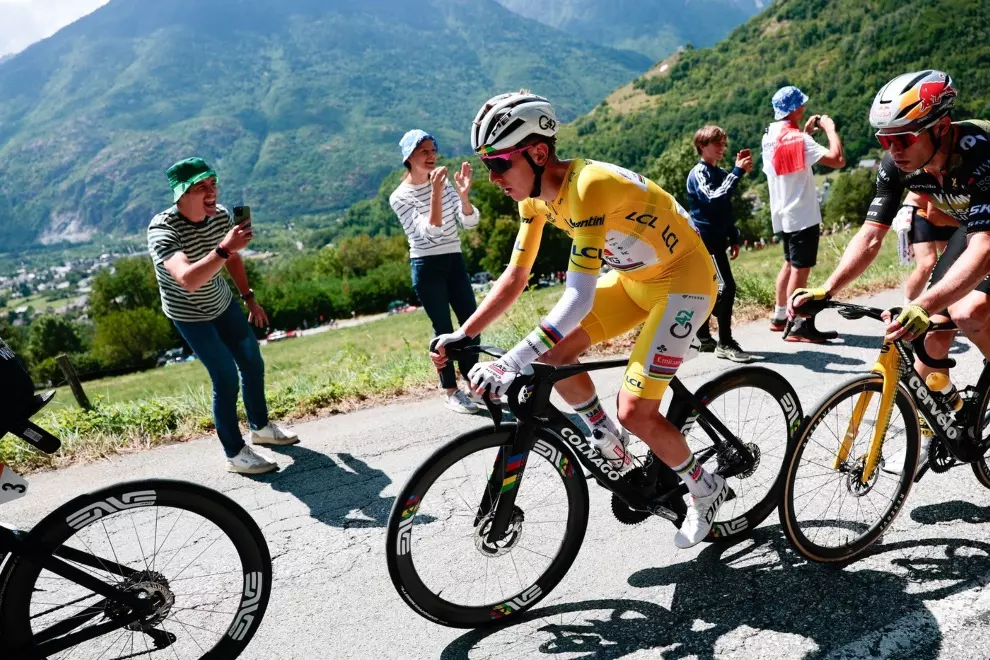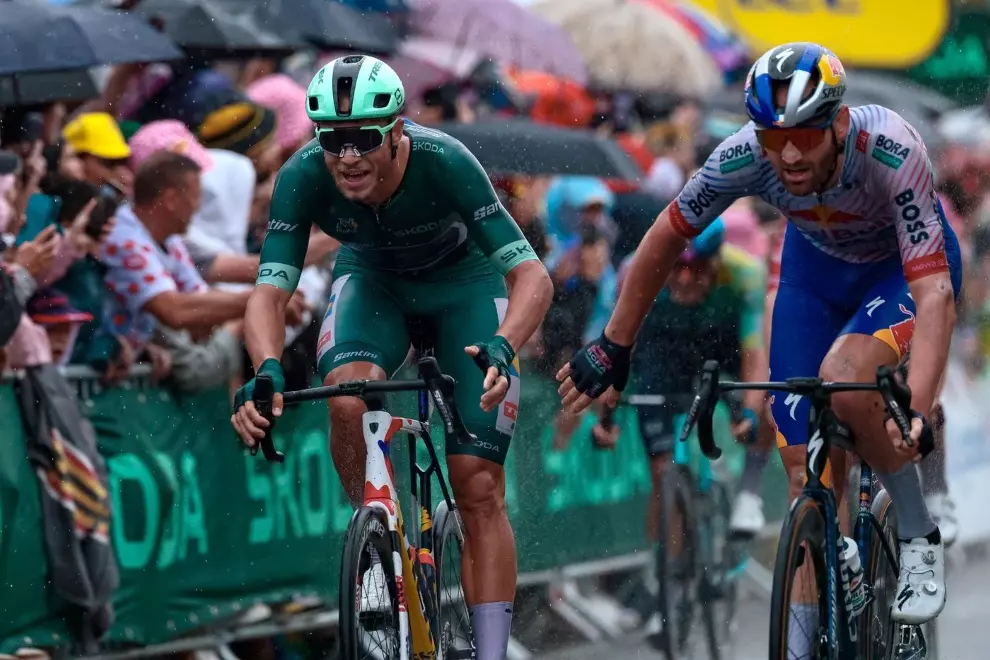In a dramatic and crash-filled race, the 107th edition of this Monument, the two-time Tour de France winner became only the third rider in history to win the Tour and the race known as the Ronde, after France’s Louison Bobet and the great Eddy Merckx.
It was sweet revenge for the 24-year-old UAE Team Emirates leader after losing last year’s Flanders to Mathieu van der Poel (Alpecin-Deceuninck) in a sprint and because he had never beaten either van der Poel or Wout van Aert (Jumbo-Visma) in the ten previous one-day races in which they had raced. “This is a day I will never forget,” the jubilant but exhausted winner told Eurosport immediately after the finish. “I can retire after today and be proud of my career.”
Pogačar laid out his strategy days before the race. “It is always better to finish alone,” he told Sporza. “In a group, the chances are smaller for me, so winning solo is ideal for me.”
This was especially clear in this year’s E3 Saxo Bank Classic where he reached the last kilometre with van der Poel and van Aert and finished a well-beaten third in the sprint, won by van Aert. In the Flanders, he dropped van der Poel with 18 km to go in the 273.4 km race, on the third climb of the cobbled Oude Kwaremont (2.2 km at 4%, with a maximum gradient of 11.6%). He held a lead of 15 seconds over the Dutchman after the day’s final climb, the Paterberg (400 m at 16.9%), and then time-trialled the rest of the way, building a lead of as much as 28 seconds before coasting home 16 seconds ahead of the visibly disappointed van der Poel.
Mads Pedersen (Trek-Segafredo) nipped van Aert in a sprint to finish third, 1 min 12 sec behind the winner. It is telling that Pogačar’s winning move came on the Oude Kwaremont, a climb he loves and one that suits his climbing ability. “To go solo on the Kwaremont, I gave it [my] all,” he said. “But I almost cracked on the Paterberg.”
It was also a wonderful performance by van der Poel who was caught out of position several times during the race when the peloton split after a burst of speed in the front, and he had to rely on his teammates to catch up. While his second place was certainly a disappointment, he cannot fault his effort or his podium place. He was simply beaten by a better rider with the perfect strategy. “It’s never good to finish second,” he told journalist after the race, “but it’s a bit easier here because he was the strongest, he deserved the win.”
Van Aert, who desperately wanted to win the race, was hobbled in a horrendous mass crash with 140 km to go and rode the rest of the race with blood oozing from his left knee. Some 40 riders hit the pavement when Polish rider Filip Maciejuk (Bahrain Victorious) attempted to move up in the pack by riding on the verge of the road and hit a puddle that sent him careening into several riders. As a result, Pogačar’s teammate Tim Wellens and Peter Sagan, who was riding in his last Ronde, were unable to continue. Maciejuk was disqualified and later apologized for his rashness on social media.
The Tour of Flanders, with its 19 climbs, some of them cobbled, its six stretches of cobblestone roads and its unpredictable weather, has always been a thrilling exhibition of road racing. And this edition was one of the most dramatic from the nervous, high-speed start. The pace was so fast for so long that the many attempts to break away from the bunch came to nothing.
It took more than 110 km of road before five riders were allowed to form a successful breakaway when the peloton slowed in preparation for the ordeal to come. Pogačar caught the last remaining rider from that breakaway, Mads Pedersen (Trek-Segafredo), with 18 km to go. As proof that the race was run at a breakneck speed throughout, it was by far the fastest Ronde ever, with an average speed of 44.083 kph.
For Pogačar, this Tour of Flanders victory appears to be as important as winning the Tour de France yellow jersey. Asked if he would now consider the season a success even if he did not win this year’s Tour, he replied, “Yes.” To put his achievement, in perspective, he is only the second rider to win four Monuments before the age of 25. The other rider? Eddy Merckx, of course.




